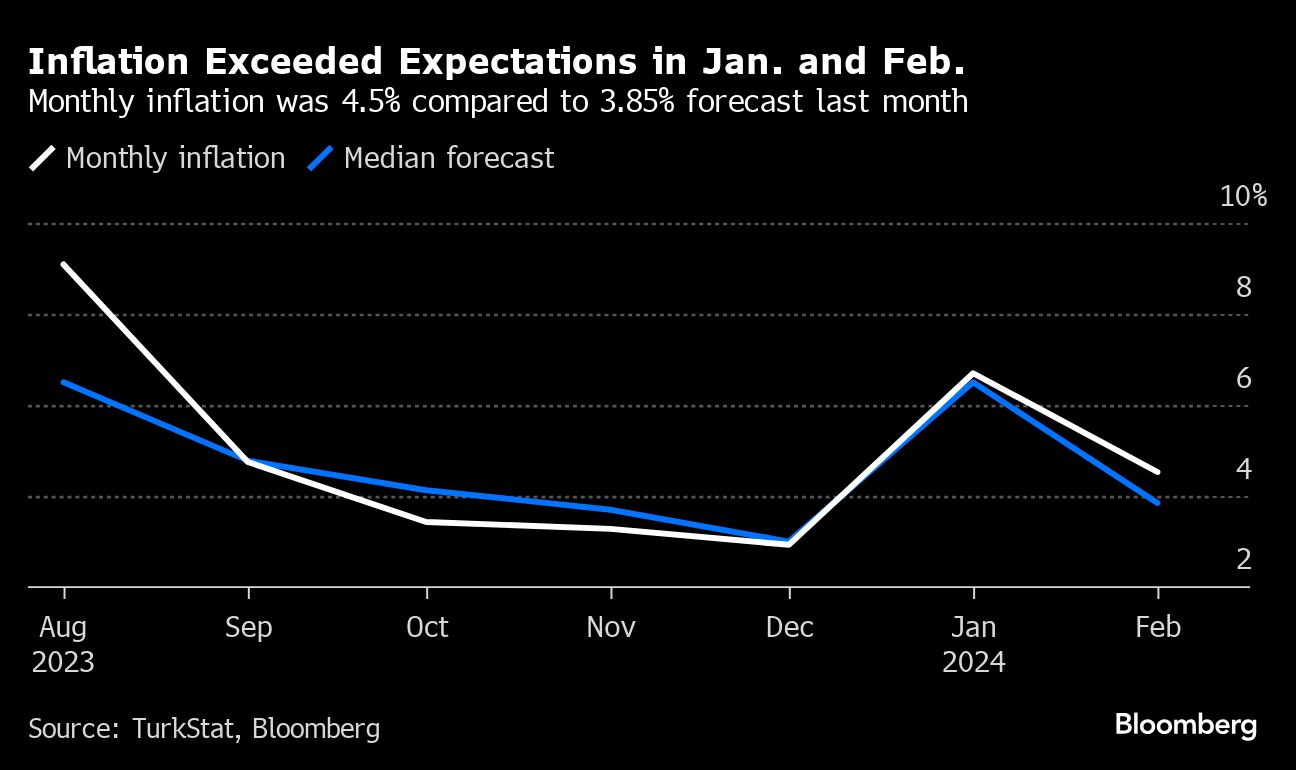(Bloomberg) — Turkey’s central bank raised interest rates on Thursday, a surprise decision just ahead of elections that shows the urgency of supporting the lira after a selloff.
Most Read from Bloomberg
The Monetary Policy Committee led by Governor Fatih Karahan lifted the one-week repo rate to 50% from 45%. Only Deutsche Bank AG and Goldman Sachs Group Inc. expected a hike, with all other economists surveyed by Bloomberg seeing no change. The lira strengthened after the decision.
A faster depreciation of the lira and a deterioration in the outlook for inflation likely forced the central bank’s hand only two months after policymakers declared their tightening cycle over. Ahead of the hike, the Turkish lira was the worst performer this month among emerging-market currencies tracked by Bloomberg, with a loss of about 3.7% against the dollar.
As local elections approach on March 31, the bigger worry was a repeat of its slump after last year’s presidential vote, when it dropped as much as 7% in a single day.
At stake in the polls are mayoral seats in the country’s biggest cities, a chance for President Recep Tayyip Erdogan’s ruling party to take back control of Istanbul and Ankara from the opposition.
Read more: Turkey Finance Chief Highlights Central Bank Policy Independence
The final stretch before Turkish elections is an unusual time for officials to tighten policy. In years past, an economic remedy favored by Erdogan has been to try to buy off the electorate with ultra-low rates and fiscal giveaways. The course has partly shifted since last year’s presidential ballot, when critics warned Turkey was at risk of a balance-of-payments crisis.
A more mainstream approach since then has produced eight straight rate hikes, enough to pique the interest of global investors. But a surprise upswing in consumer prices last month returned the spotlight to inflation that’s on track to exceed 70%.
Questions also swirled over a slew of backdoor tightening measures in recent weeks by the central bank that some have likened to an era of unorthodox economics under previous leadership.
An outright rate increase would instead create incentives for savers to keep money in lira assets and may pave the way for a return of foreign capital, analysts at Deutsche Bank said ahead of the announcement on Thursday. Inflows have been slow and foreigners exited Turkish assets in the first two weeks of this month.
A survey of market participants by the central bank showed their year-end inflation outlook rose by more than a percentage point to over 44.2% this month, far higher than currently forecast by the central bank. Monthly price growth — a gauge closely watched by the monetary authority — accelerated to 4.5% in February.
